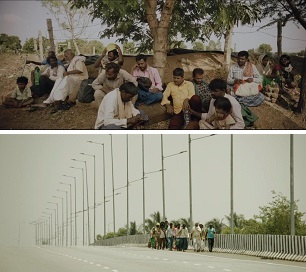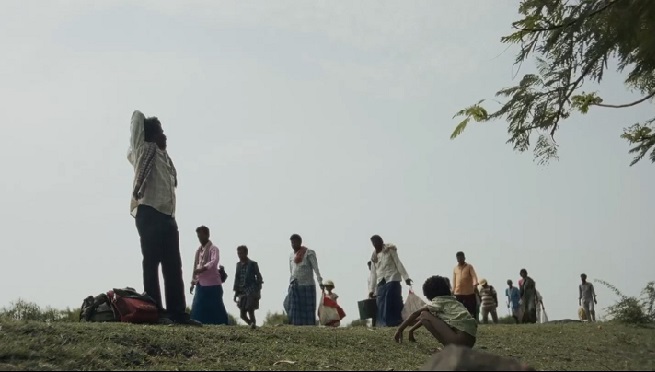At the perspective pith of Photo (Kannada, 2023) is an evocative parable of humanism and human foibles. Set in the time of, and shot during, the sudden and unexpected imposition of the nationwide lockdown, it is an ironic, touching tale of a boy in a village who wishes to go and take an up, close and personal view of the State’s seat of power, the magnificent and monumental Vidhana Soudha.
What’s so special one may ask? Especially, the city bred young and the fortunate denizens privileged to have found a home in the sprawling metropolis. After all, they pass by it almost every day in the course of reaching their respective destinations, without as much as a whit of a glance at it, given that it is registered in their psyche and collective memory. For the boy, a visit to the Vidhana Soudha, whose almost life size picture hangs in his classroom, is the equivalent of visiting and soaking in the beauty of that marvelous monument of love, the Taj Mahal in Agra. The film also makes a point about peer pressure/envy: since every other home in the neighbourhood proudly displays a family photo taken at the Vidhana Soudha, the boy too desires to possess one with his father and him in front of it.
Debutant film maker Utsav Gonwar’s locked-down-in-the-pandemic experiment exhibits several thematic tracks. One, of a village boy and his dream, which has a political context. Two, of how skewed development has turned a placid, peaceful city into a monstrous, noisy and noxious metropolis with no soul. And three, of the mass exodus of rural folk to the big cities in search of the elusive El Dorado. Unlike Diwa Shah’s Bahadur – The Brave (Hindi-Nepali, 2023), made in the same genre but which sticks to the core subject of the struggles of the migrant labourers and how they come to terms with their rootless situation, Gonwar’s film is out and out political.
 Using a cherubic boy with a curiosity chiseled chimera as the central character, Gonwar dons the hat of a political crusader and takes the audience on a neorealist realty-reality tour of a city with its locked in migrants with nowhere to either go or stay. The seat of power, Vidhana Soudha, itself provides on a platter the pivot to project a searing, searching and reflective prognosis on the absence of political will, and effective governance, to extend the fruits of economic growth and development to the lesser privileged and marginalised sections of society. Gonwar takes up cudgels with the government at the centre, and parodies the janta curfew that was announced in the course of the pandemic.
Using a cherubic boy with a curiosity chiseled chimera as the central character, Gonwar dons the hat of a political crusader and takes the audience on a neorealist realty-reality tour of a city with its locked in migrants with nowhere to either go or stay. The seat of power, Vidhana Soudha, itself provides on a platter the pivot to project a searing, searching and reflective prognosis on the absence of political will, and effective governance, to extend the fruits of economic growth and development to the lesser privileged and marginalised sections of society. Gonwar takes up cudgels with the government at the centre, and parodies the janta curfew that was announced in the course of the pandemic.
He focusses his lens on the ‘Government’s Work is God’s Work’ wordings inscribed on the entablature of the stately legislature structure, to drive in the point of the absolute power that the State holds over its powerless migrant population. The camerawork is mostly minimalist and static, despite its eponymous title. However, the long, panoramic, sweeping shots capturing the arid landscape bring back memories of another significant film. Whereas in P. Vinothraj’s Pebbles (Tamil, 2021), the son maintained a reasonable distance from his easily irritable dad, in Photo, the son trudges alongside his migrant labourer dad and sometimes sits on his shoulder as the two make their way in the scorching heat towards the faraway cocoon of safety and semblance of reality called home.

Leave a Reply
You must be logged in to post a comment.